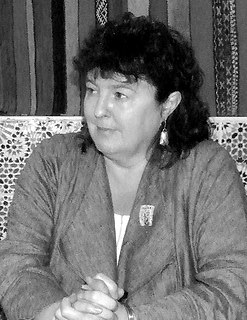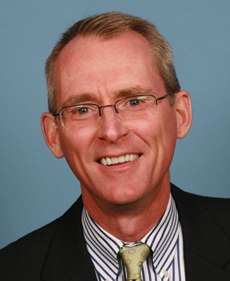A Quote by Carol Ann Duffy
If we think of what's up ahead, with climate change and wars over water, it's very frightening.
Quote Topics
Related Quotes
You might not see climate change as an immediate threat to your job, your community, or your families," Kerry said. "But let me tell you, it is." He continued, "climate change is directly related to the potential of greater conflict and greater instability. I'm telling you that there are people in parts of the world - in Africa today, they fight each other over water. They kill each over it. And if glaciers are melting and there's less water available and more people, that is a challenge we have to face.
I think that will only really change when the human races begins to suffer some of the extremely severe consequences of climate change which may be some decades ahead. They will then realise, as we have with the financial crisis, that we are up against the wall and hitting the buffers and we have got to change.
Despite the international scientific community's consensus on climate change, a small number of critics continue to deny that climate change exists or that humans are causing it. Widely known as climate change "skeptics" or "deniers," these individuals are generally not climate scientists and do not debate the science with the climate scientists.
I think the challenge of climate change in particular is the challenge for us to create and produce new norms for a new kind of world. And that's why I think as important as the issue of climate change is, it's even more important than it seems because if we can't evolve very quickly, new norms to deal with issues like climate change, we're not going to be able to survive in the kind of world we've created. So I think, really, the whole nature of democracy, of governance, of global community and of solving the kinds of problems of the 21st Century are really at stake.
My experience as energy and climate change secretary - in the months I spent battling George Osborne over the budget for investment in low carbon, and in the daily attrition with Eric Pickles over onshore wind - was that many Conservatives simply regard their commitment to climate change action as something they had to say to get into power.
...the world needs to face up to the challenge of climate change, and to do so now. It is clear that climate change poses an urgent challenge, not only a challenge that threatens the environment but also international peace and security, prosperity and development. And as the Stern report showed, the economic effects of climate change on this scale cannot be ignored, but the costs can be limited if we act early
Climate change, in some regions, has aggravated conflict over scarce land, and could well trigger large-scale migration in the decades ahead. And rising sea levels put at risk the very survival of all small island states. These and other implications for peace and security have implications for the United Nations itself.
It's very hard to track down what's real and what's not real. We haven't absorbed what climate change is doing. Because whether people associate it or not, fear of immigration is completely related to climate change, because the mass migrations that are happening, the war in Syria, all of these structural human migrations are related to climate change.







































